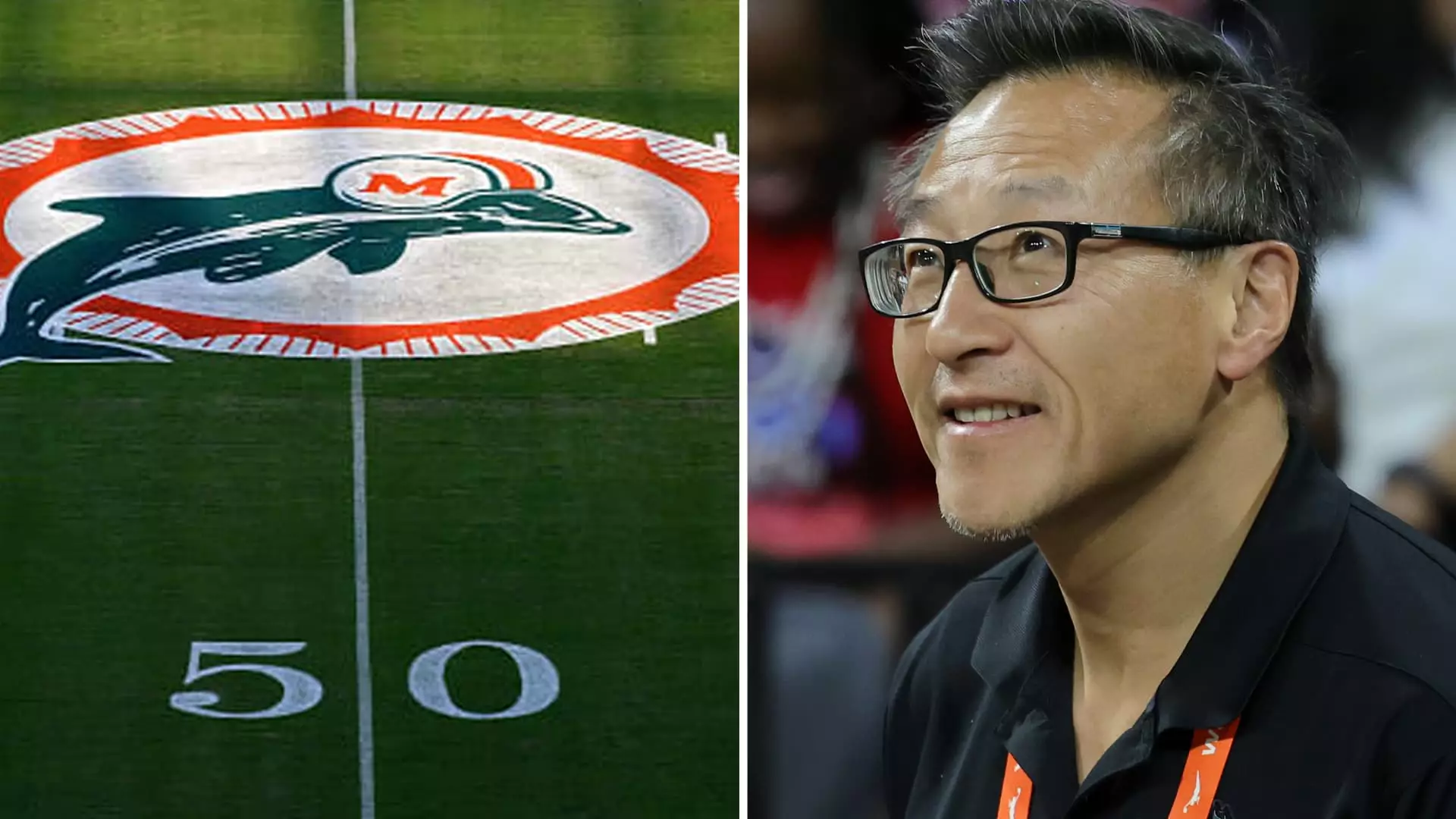The landscape of sports ownership is evolving, and the Miami Dolphins are at the forefront of this change as they engage in negotiations to dilute their equity through a partnership with private equity firm Ares Management and billionaire Joe Tsai. This move reveals a strategic shift not only for the Dolphins but also within the National Football League (NFL) at large, one that highlights the growing trend of wealthy individuals and investment firms positioning themselves to capitalize on the lucrative world of professional sports.
The potential minority stake sale, which reportedly values the Dolphins and associated assets at an eye-watering $8.1 billion, epitomizes the growing financial muscle within the realm of sports ownership. While the Miami Dolphins are valued as the eighth most expensive team in the NFL, at $7.1 billion, excluding the stadium, the incorporation of Hard Rock Stadium, operating rights for the Miami Grand Prix F1 race, and a significant chunk of the Miami Open elevates the potential investment’s worth. These concurrent elements illustrate how team ownership is no longer confined to the team’s performance on the field, but instead is intricately linked to multifaceted revenue streams generated by related events and facilities.
Stephen Ross, who purchased the Dolphins for $1.1 billion in 2009, stands as a critical player in this narrative. As an owner who also controls Hard Rock Stadium, he is poised to benefit substantially from diverse revenue sources. His recent rejection of a record $10 billion offer for complete control over the team and its associated assets indicates a clear intention to keep the franchise within his family’s reach. This conviction underscores a pivotal theme: ownership in sports is as much about legacy and familial control as it is about financial gain.
This prospective deal marks a significant breakthrough for the NFL, as it would represent the first private equity investment following the league’s revised financial regulations approved in August. The NFL has historically been resistant to outside investment in teams, but shifting dynamics, characterized by increasing valuations and the ambition of franchise owners, are prompting a reevaluation of these norms. Ares Management’s involvement—notably one of the four groups approved by the NFL for potential investment—signifies the league’s willingness to adapt, a necessity in an era where substantial deals are essential for sustaining team viability.
As with any transformation, there are far-reaching implications. By allowing private equity firms to invest in team ownership, the NFL may produce a ripple effect, fostering a competitive environment, enhancing team facilities, and possibly increasing player salaries—all while maintaining team performance standards. All eyes will be on how well this partnership drives financial returns while preserving the integrity and tradition of America’s most popular sport.
Simultaneously, Joe Tsai’s burgeoning sports empire deserves a closer look. The owner of the Brooklyn Nets, Tsai has expanded his portfolio to encompass multiple franchises across several leagues, including the ownership of the San Diego Seals and co-ownership of the Las Vegas Desert Dogs in the Premier Lacrosse League. With substantial stakes in the Barclays Center and aspirations to enhance his sports management reach, Tsai embodies a new generation of owners who see value not only in the game itself but also in the broader sports entertainment ecosystem.
His potential acquisition of an additional 3% stake in the Dolphins is reflective of a growing strategy among those in the sports industry, positioning themselves as key players in a dynamic market. This diversification of ownership, which transcends traditional boundaries of individual team control, indicates a future where collaboration among team owners and investors could reshape the financial foundation of sports leagues.
As negotiations for a minority stake in the Miami Dolphins unfold, the implications extend far beyond the confines of this singular transaction. They encompass a broader narrative regarding the evolution of sports ownership and investment. The marriage of traditional ownership with private equity opens new avenues for financing, risk management, and operational excellence within the realm of professional sports.
Ultimately, as the NFL embraces this trend, one must ponder how these changes will influence team culture, fan engagement, and competition in professional leagues. The Miami Dolphins’ decision to consider partial privatization may be just the beginning, heralding a new era in which sports franchises can harness an ever-expanding financial landscape to further their success on and off the field.

